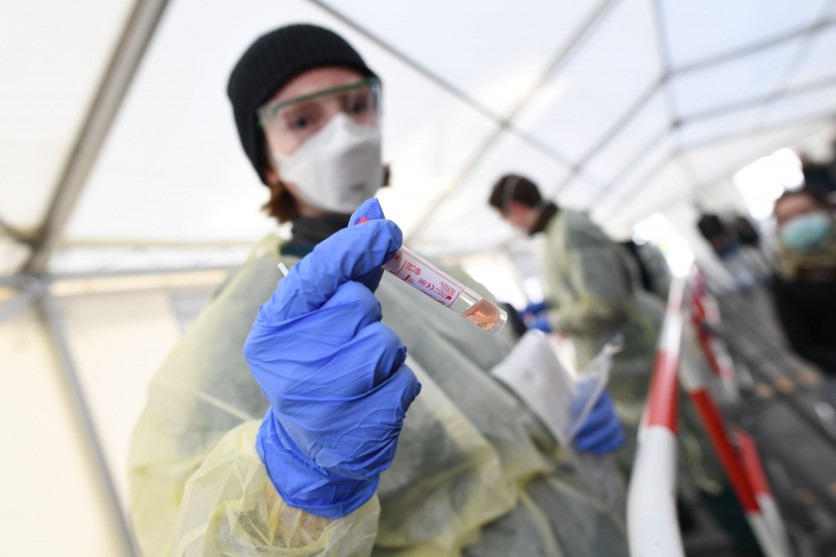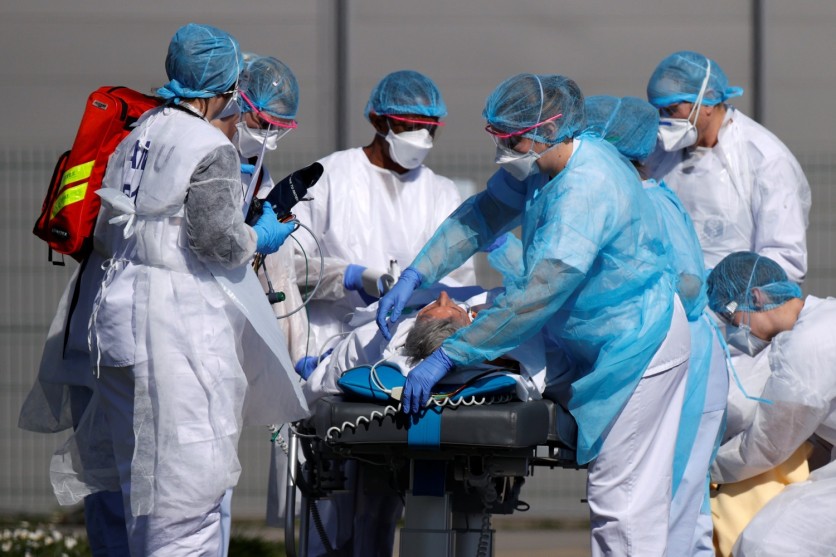
A new, persistent, tickly cough and temperature measuring above 37ºC--These, according to NHS guidance, are the two tell-tale signs and symptoms of COVID-19. But, because of the wide variety of cases explodes across the world, patients themselves are reporting exceptional signs altogether.
According to them, it may vary from sore eyes to slight tiredness. For most, the cough and fever crop up to their infection, once they've unknowingly infected others.
Dr. Edward Wright, virologist and senior microbiology professor at the University of Sussex, told DailyMail that five to ten cases might be undetected because their symptoms might be atypical, or they could have none at all.'
ALSO READ : New Study Found One in Three COVID-19 Positives are 'Silent Carriers': Guess Which Country Has Them Most
How do you know if you have it?

Government advice could advise that the signs and symptoms are smooth to detect. Based on studies, at least 82% of sufferers will see a new, persistent cough, and 98% could have a temperature above 37 degrees.
Yet, sufferers themselves have defined a wide range of early symptoms, easily mistaken for 'jet lag,' the effects of an 'intensive gym workout' or being 'generally run down.'
Lidia Puerta, a 26-year-old former scholar at Imperial College London who is eight months pregnant, defined the early as 'just exhaustion.'
Since then, Lidia, who is from Spain, says she has been 'absolutely asymptomatic.' She said she felt tired and was able to sleep well.
Lidia sought medical help because she was 'over-cautious' given she's from a high-risk area and being eight months pregnant. She told DailyMail she wouldn't have rushed to do the test if she wasn't pregnant.
London-based GP Clare Gerada, who tested positive for the virus on Friday, Mar. 13, clearly felt jet lag at first.
Gerada's initial symptoms had been so mild, and she went to work on Monday, Mar. 23. It was 48 hours after the first warning signs that things took things for granted.
Gerada, who's the previous chair of the Royal College of General Practitioners, said her cough was dry, itchy, and painful. Despite this, she managed to treat herself at home with paracetamol.
One 43-year-old patient, who does not want to be named for fear it could jeopardize his job, likened his initial signs to an extensive exercise regime.
The meant tell-tale cough came almost a week after the original complaints.
So are we looking out for the wrong signs?
Dr. Wright said cough and fever are "dependable signs" of this unique virus.
He explained coronaviruses usually result in a fever and high temperature, which are the physical signs that the immune system is kicking in and attacking the virus.
"It's only once the virus replicates, slightly further into the infection, that it can cause damage to the upper respiratory tract, which can result in cough and soreness," Wright said.
He said the immune system would be more alert to different items if the person is "young and healthy." Hence, they would be more likely to experience more significant fever-like symptoms faster.
However, scientists haven't figured out why some feel signs quicker than others yet. Hence Wright pushes for community testing for people that don't have symptoms for experts to spot for possible cases before they develop symptoms and are infectious.
ALSO READ : New Scientifc Warning: Coronavirus Will Be More Dangerous Than Seasonal Flu and Will Remain Forever!
Last week, American researchers claimed a few patients were reporting 'nausea or diarrhea' - despite many symptom-checkers that have been posted indicating this becomes rare.
Do people need to take severe precautions with even the slightest sniffle?
So do people need to people with even the slightest sniffle take serious precautions? Definitely, says Jonathan Ball, Professor of Molecular Virology at Nottingham University.
Ball pointed out emerging data suggesting that in as much as 70% of the infection cases will present with symptoms similar to a common cold.
"[Assuming] one can easily transmit the virus wouldn't be unreasonable," explained Ball.
Wright agreed with Ball's statement, saying coronaviruses generally cause cold-like symptoms along with runny noses and muscle aches.
'With this particular type of coronavirus, Wright said cough and fever appear to be mainly common, but you don't always get those.
The motive why otherwise healthy individuals come to be so desperately sick from this virus is currently unknown, according to Dr. Wright.
He said scientists don't have a clear picture of why some people may also have mild disease and others severe. The condition has something to do with genetics, but Wright explained coronavirus could replicate more rapidly, killing extra cells.
ⓒ 2026 TECHTIMES.com All rights reserved. Do not reproduce without permission.




